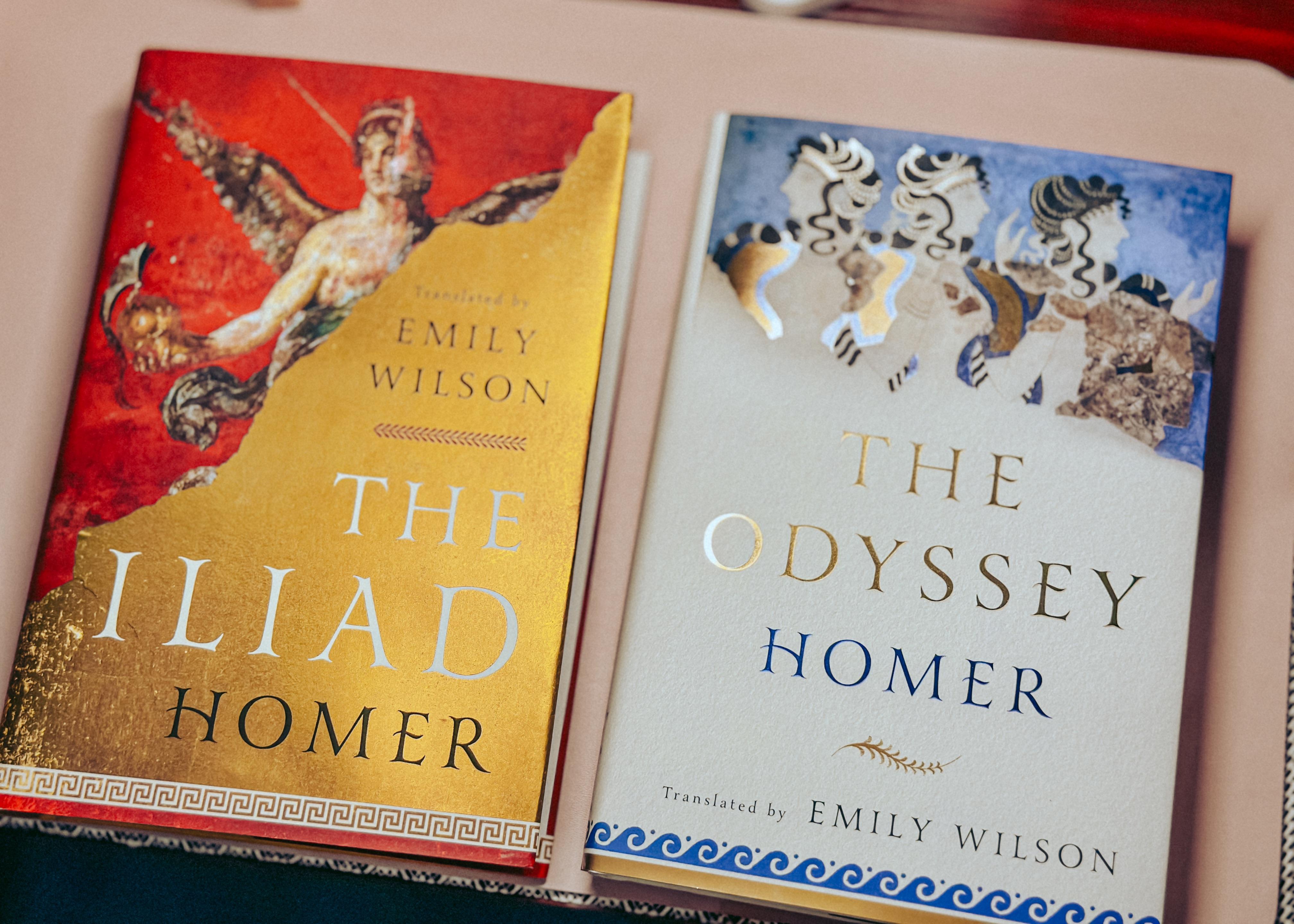Thursday 25 January 2024
7-8pm GMT via Zoom
Acclaimed translator Professor Emily Wilson in conversation with Classics for All's The Chorus.
The Chorus – Classics for All’s network for young classicists – is pleased to announce its upcoming event with the esteemed classical translator, Professor Emily Wilson. Join us for a captivating discussion on the art of classical translation and its significance in the realm of epic literature.
During the event, Professor Wilson will discuss her renowned translations of Homer's Odyssey (2017) and Iliad (2023), her journey into academia, and why translation is so important to her. There will also be time to ask Professor Wilson your burning questions.
Whether you're new to classics or well-versed in the epic genre, this event will provide essential context to some of the most celebrated classical texts.
Attendance is free, but booking is required. This event is aimed at sixth-form students and undergraduates and is open to both existing and new members of the Chorus.
This event is for students and young classicists aged 16 and over. To attend this event, students must sign up to become a member of The Chorus. A link to access the session will be emailed to members before the event.
Emily Wilson
Emily Wilson is Professor of Classical Studies at the University of Pennsylvania. She attended Oxford University (Balliol College BA in Classics and Corpus Christi College MPhil in Renaissance English Literature) and Yale University (PhD in Classics and Comparative Literature). She has been named a Fellow of the American Academy in Rome in Renaissance & Early Modern scholarship, a MacArthur Fellow, and a Guggenheim Fellow. Her work demonstrates the vital role translation plays in creatively mediating between the social and linguistic borders demarcating the ancient and modern worlds. Her translations have brought attention to unappreciated features in Classical Epics such as their representation of women and the sound of ancient poetry, reconfigured through Wilson’s use of the iambic pentameter.
Follow Professor Wilson on Twitter @EmilyRCWilson.
Translations of Homer:
Emily Wilson's Odyssey (2017) is a lean, fleet-footed translation that recaptures Homer’s “nimble gallop” and brings an ancient epic to new life.
Wilson's Iliad (2023) gallops at a pace befitting its legendary battle scenes, in crisp but resonant language that evokes the poem’s deep pathos and reveals palpably real, even “complicated,” characters—both human and divine.
Selected Twitter threads:
Professor Wilson frequently tweets about Homer and translation.
The Impossibility of Translating Homer into English (March 8, 2019)
'So that you can all feel my pain, here are a few more reasons why it's more or less impossible to translate Homer into English in a satisfactory way.'
“Find the Beginning” The Odyssey (Book 1, line 10) (March 19, 2019)
“The Greek is this: τῶν ἁμόθεν γε, θεά, θύγατερ Διός, εἰπὲ καὶ ἡμῖν. My rendition is: '"Tell the old story for our modern times. / Find the beginning".”
NOT The First Woman to Translate the Odyssey (October 2, 2019)
“I put "NOT the first woman to publish a translation of the Odyssey" on my twitter-bio, after seeing it asserted for the gazillionth time.”
Some Challenges to Translating the Iliad (January 2, 2020)
“Ideally, every choice has to make sense in itself & in the context of 10,000 other similar choices, in the larger quest to produce a text with a deep and detailed connection to the original, & with its own life and integrity in English.”



